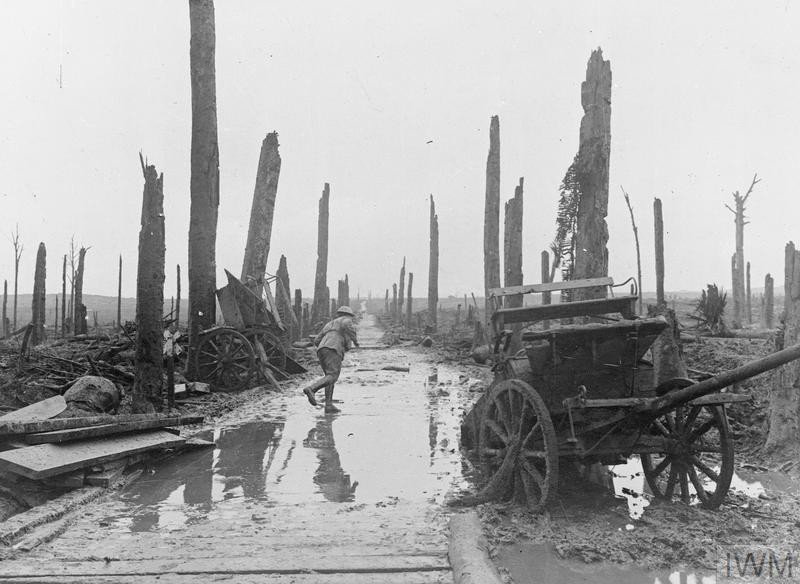
Some members of the British Royal family are preparing to mark the 100th anniversary of the bloody Passchendale campaign.
Also known as the Third Battle of Ypres, the long and protracted offensive raged between July and November of 1917, claiming over half a million lives from all sides involved.
Passchendale, a small rural community in the West Flanders province of Belgium, became the site of historic carnage as German, British, and French troops fought for control of the strategically important Passchendale Ridge, a stretch of elevated ground about 70ft above sea level.
Seizing and controlling the high ground was crucially important for both sides, as the vantage point enabled unobstructed ground observation and a prime position for artillery pieces, with the added advantage of providing cover to conceal troop movements from the enemy.
Incessant bombardment during previous engagements had left the battlefield pocked by hundreds of shell holes, and had churned the ground to a quagmire. Constant rain during August 1917 compounded the problem, leaving the terrain with the “consistency of porridge”, as some combatants put it.
Horror and misery became the norm at Passchendale, with thousands of troops meeting their fate in a desolate ocean of mud that swallowed men, horses, and military hardware alike.
“It was a curious kind of sucking kind of mud. It ‘drew’ at you, not like a quicksand, but a real monster that sucked at you…”, soldiers said of the vast amounts of soft mud surrounding them.
There was no gas, nor there were tanks fielded at Passchendale. The campaign was purely an infantry engagement, with hundreds of thousands of foot soldiers sent to fight and die in agony inside a massive quagmire.
The exact number of casualties will probably never be known, but estimates put at around 245,000 dead, injured, or missing British troops, about 280,000 German (though some estimates quote up to 400,000 casualties), and a comparable number of French soldiers, either dead, sick, or missing.
The British side claimed victory, though it would be a pyrrhic win. The British army was depleted, and exhausted after suffering such enormous bloodshed during three long months of hellish struggle.


